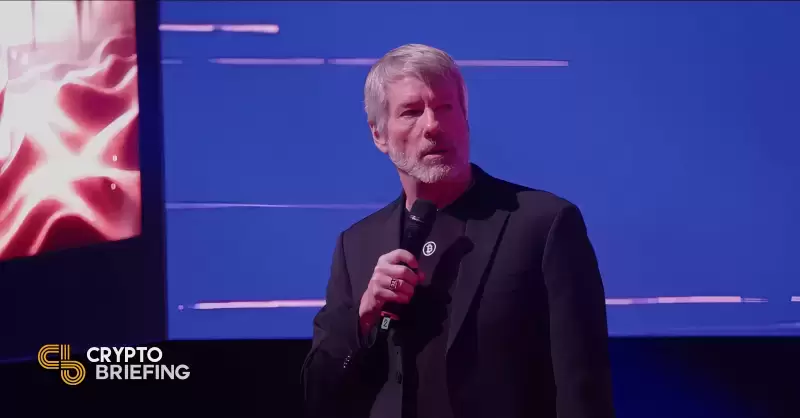 |
|
 |
|
 |
|
 |
|
 |
|
 |
|
 |
|
 |
|
 |
|
 |
|
 |
|
 |
|
 |
|
 |
|
 |
|
Cryptocurrency News Articles
Bitcoin Miners Navigate the Diminishing Block Rewards Era: Transitioning to Transaction Fees
Apr 04, 2024 at 03:37 pm
In the future of Bitcoin mining, the transition from block rewards to transaction fees will challenge miners' revenue streams. However, alternative income sources such as participation in demand response programs and access to cheap or free electricity may sustain mining operations. Additionally, the self-interest of Bitcoin holders, potential involvement of major investment funds, and adoption by countries as a reserve currency suggest that the long-term stability and security of the Bitcoin network will continue.

The Future of Bitcoin Mining: Navigating the Era of Diminishing Block Rewards
As Bitcoin's journey unfolds, one of its most defining characteristics has been its finite supply of 21 million coins. However, as the final Bitcoin approaches its extraction, the question looms: what will sustain the network's security and facilitate transactions once the block rewards run dry?
Understanding Bitcoin Mining
Bitcoin mining is the backbone of the Bitcoin ecosystem, responsible for validating transactions, securing the network, and introducing new coins into circulation. Miners utilize specialized computers to solve complex cryptographic puzzles, and in return, they are rewarded with freshly minted Bitcoins and transaction fees.
Initially, miners received 50 Bitcoins per block solved, but every 210,000 blocks, or approximately every four years, a "halving" event occurs, reducing the reward by half. Three halvings have transpired to date, with the block reward currently standing at 6.25 Bitcoins. The next halving is expected in April 2024, further reducing the reward to 3.125 Bitcoins.
Transitioning from Block Rewards to Transaction Fees
As the supply of Bitcoin approaches its maximum, the block reward will inevitably dwindle to zero. This raises concerns about the incentives for miners to continue securing the network.
Unlike gold, which retains its value independent of mining, Bitcoin miners are essential for maintaining the integrity and security of the blockchain. To address this, transaction fees will play a crucial role in incentivizing miners to continue their operations.
Miners receive all transaction fees associated with the blocks they solve, which are paid by the senders. The hope is that as Bitcoin adoption grows and its price increases, transaction fees will generate sufficient revenue to sustain mining operations. However, the historical reliance on block rewards has led to skepticism about the viability of fees alone as a primary incentive.
Recent Developments and Alternative Income Sources
The recent surge in popularity of Bitcoin Ordinals, which involves inscribing data onto the Bitcoin blockchain, has resulted in a spike in transaction fees. While this provides a temporary boost to miner revenue, its long-term sustainability is uncertain.
Aside from transaction fees, miners may explore alternative income sources to supplement their operations. One potential avenue is participation in demand response programs. These programs incentivize large electricity users, such as Bitcoin miners, to voluntarily pause operations during peak demand periods to balance out the electrical grid. In regions with expanding renewable energy capacity, such as Texas, miners have already earned up to 10% of their revenue through these programs.
Additionally, miners with access to cheap or free electricity, through partnerships with renewable energy providers or other favorable agreements, may be able to sustain mining operations even with reduced block rewards.
Self-Interest and Future Investments
Bitcoin holders, especially major investment funds and countries adopting Bitcoin as a reserve currency, have a vested interest in maintaining the security of the network. These entities may set up mining operations or support miners financially to ensure the longevity of the Bitcoin ecosystem.
The Road Ahead
While the transition from block rewards to transaction fees presents challenges for Bitcoin miners, the network's resilience and adaptability suggest that it will continue to thrive. The rise of Bitcoin Ordinals, alternative income sources, and the self-interest of Bitcoin holders contribute to the optimism surrounding the future of Bitcoin mining.
As technology advances and the cryptocurrency landscape evolves, miners will likely adapt their strategies to secure the Bitcoin ecosystem and ensure its ongoing success. The finite supply of Bitcoin may pose challenges, but it also reinforces the importance of securing and maintaining the network, which will drive innovation and adaptation in the Bitcoin mining industry.
Disclaimer:info@kdj.com
The information provided is not trading advice. kdj.com does not assume any responsibility for any investments made based on the information provided in this article. Cryptocurrencies are highly volatile and it is highly recommended that you invest with caution after thorough research!
If you believe that the content used on this website infringes your copyright, please contact us immediately (info@kdj.com) and we will delete it promptly.



























































